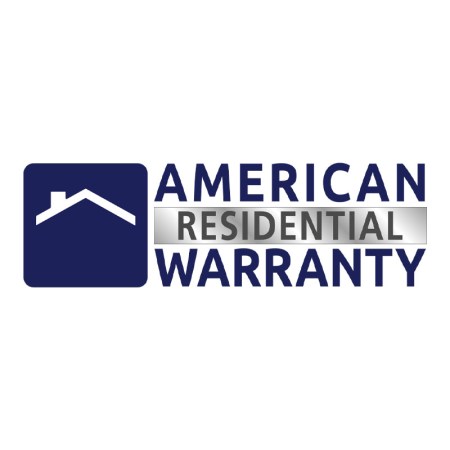We may earn revenue from the products available on this page and participate in affiliate programs. Learn More ›

The best homeowners insurance companies can help cover the cost of repairing damage to a home caused by certain weather events, accidents, fires, or vandalism, but they won’t offset the financial hit caused by the failure of a major home system or appliance. A home warranty can, though.
“Maintenance and repairs are an inevitable part of homeownership and yet according to a recent survey, one in four homeowners do not have a budget set aside for this purpose,” explains Jessica Fields, vice president and chief sales officer with American Home Shield. “One of the best ways to avoid a situation where you have to choose between repairs is to plan ahead with a home service plan that covers your home systems and appliances when breakdowns or damage occurs due to normal wear and tear.”
But what is a home warranty, and how does it work exactly? It’s a type of service contract designed to meet the needs of a wide range of homeowners. Home warranty companies often cover the cost of maintenance, repair, and sometimes replacement of whole-home systems and certain appliances during the period the policy covers.
The best home warranty companies offer a wide range of coverage options and high coverage limits, along with clear, easy-to-understand conditions. They work with reputable technicians or, in some cases, allow customers to select the technician of their choice. This guide features a curated selection of the best home warranty companies for homeowners to consider.
- BEST OVERALL: American Home Shield
- RUNNER-UP: AFC Home Club
- BEST FOR LOW RATES: Choice Home Warranty
- BEST CLAIMS PROCESS: Cinch Home Services
- BEST ADD-ONS: Liberty Home Guard
- ALSO CONSIDER: American Residential Warranty

How does a home warranty work?
A home warranty policy begins with the payment of a premium. When the policyholder needs a repair or service for a covered system or appliance, they will contact the warranty company to file a claim. The policyholder will pay an agreed-upon service fee, and a qualified technician will come to their home and perform the repair or replacement at no additional cost, up to the coverage limit.
Home warranty policies may have coverage limits per service call, event, appliance, and year, but these will be specified in the agreement so there will be no surprises for homeowners along the way. The cost of the premium and service charges can be significantly less than one or two service calls without a warranty, especially in older homes or those with aging appliances and systems, so many homeowners find the cost of a home warranty to be worth it.
What to Consider When Choosing One of the Best Home Warranty Companies
To make sure they choose the best warranty company for their needs (and avoid home warranty scams), homeowners will want to assess their coverage needs, consider their budget, and compare how each company handles various aspects of coverage. Checking with the Better Business Bureau and the National Home Service Contract Association (which offers accreditation for home warranty companies), consulting friends and neighbors, reading home warranty reviews, and collecting policy quotes from several companies can also make choosing a provider more manageable.
“When it comes to a home warranty company, consider the agreement,” advises Elizabeth Dodson, co-founder of HomeZada, an online resource to help users manage all aspects of homeownership. “Any analysis should take into account the annual cost of the warranty, the scope of coverage and age of your equipment and appliances. Shop home warranties from companies in your area that can promise access to local, contractors with business licenses, bonding and insurance. If they can’t provide this information, they don’t deserve your business.”
Service Area
A provider’s operational footprint is an important consideration for homeowners when searching for the best home warranty company. Some companies offer national coverage, while others are regional; but even then, a homeowner will want to look at the home warranty company’s coverage network.
The service area is an important consideration, especially if the company uses preapproved contractors. But just offering policies in a homeowner’s area doesn’t mean the company has a great network of qualified technicians. And if a home is outside a technician’s regular area, the homeowner may find themselves waiting an extended period for service. With companies that allow the policyholder to select the contractor or technician, this is less of a concern, but still something to think about in case their preferred contractor is unavailable.
Appliances and Systems in Need of Coverage
Home warranty coverage can be very extensive. It can protect home systems such as electrical, plumbing, and HVAC, and sometimes water heaters, garbage disposals, and garage door openers. In addition, a home protection plan can cover kitchen appliances, including refrigerators, ovens, stovetops, and ranges; wall-mounted microwaves and hoods; and dishwashers. Home warranties do not usually cover second refrigerators (such as those kept in a garage), countertop microwaves, and other small appliances. Some may exclude the main refrigerator’s ice maker. Before investigating warranty companies, the homeowner can perform a quick appraisal of the systems and appliances they want to cover so they can make sure the home warranty companies on their shortlist offer the coverage they need.
Sometimes, a homeowner may have appliances or systems in their home that are not traditionally covered in a home warranty policy, such as a swimming pool or a hot tub. In that case, they’ll want to look for one of the best home warranty companies for pool coverage that offers add-ons to its standard policies. However, the homeowner will also want to check to see how much those add-ons will cost to make sure their premium doesn’t skyrocket by adding them.
Plans
Rather than settling on the first home warranty company they come across after doing an online search, homeowners will want to compare each company’s specific offerings. They can contrast each company’s policy terms, plan options, and costs, keeping their specific needs in mind, to determine which will best fit their needs.
Most companies will generally offer whole-home system plans, in addition to appliance, combination, and add-on plans for items not covered in the basic plans. In addition, warranty companies will typically offer tiers of service, including a range from basic, less-expensive packages to premium plans that are costly but include more coverage.
Maximum Coverage Limit
Most home warranty plans will come with set coverage limits that cap the amount of money a customer will receive to pay for covered repairs or replacements. Often, coverage limits are applied to different types of home systems, appliances, and services.
For instance, HVAC repairs may be covered for a much higher amount than limited roof-leak repairs. The exact coverage amounts will vary from one company to another, and some home warranty providers may offer much more generous coverage amounts than others. It may also be worth looking at any sample contracts or user agreements that companies have available, as specific coverage limits are often listed in those documents. This way, homeowners can know exactly what their home warranty will cover—and for how much—when the time comes to submit a repair request.
Average Monthly Rate
A great benefit of a home warranty service is the ability for the homeowner to budget for repair and maintenance services. While the average cost of the home warranty plan will stay the same once a homeowner has signed a contract, that cost will vary significantly based on the type of coverage selected, the coverage limits, and the technician fees.
It’s a good idea for homeowners to understand their budget as they begin to compare companies and products. A lower budget doesn’t necessarily mean less coverage; the total cost of a home warranty balances the premium, service fees, and coverage limits. For example, customers whose budget necessitates a lower initial cost can choose a higher service fee to keep their premium lower; they’ll only need to pay the service fee if they actually file a claim. Each company will offer different packages to allow flexibility in the average monthly cost, which means homeowners can tailor their coverage to their needs and budget.
Discounts
Home warranty discounts can be a great way to lower the total cost of a policy, but not all companies will offer opportunities to reduce the price of a service plan. Other home warranty companies may offer generous discounts to new customers who sign up for a new policy or switch providers. Customers may also be able to lower the total cost of their home warranty by paying in full or purchasing multiyear plans, as some companies will extend the length of their home warranty term for free in those situations. In other cases, customers may be eligible for exclusive discounts on new appliances and other purchases, which can save them money overall, even if those discounts don’t affect the price of their home warranty directly.
Quote Process
Most home warranty companies offer free quotes, which makes comparing the offerings easier, but the process of actually getting those quotes differs from company to company. While some companies offer online quotes, others prefer that shoppers call and speak directly with an agent who can help them customize their coverage and hunt for the right combination of options. In the end, there’s a good chance that a homeowner will speak with an agent regardless, as the default quote-generating system won’t ask all the questions necessary to customize the coverage. Without speaking to a representative, this could result in a more generic quote that may or may not accurately reflect the homeowner’s actual costs if they decide to take out a policy.
Homeowners will need to provide some basic information in order to get an accurate quote. Most reputable companies won’t give a generic quote without specific information because that could lead to an inaccurate estimate. But this can be frustrating for homeowners trying to get a basic idea of costs. Shoppers will likely need to provide the home’s address, their ownership status, and information about the home’s age when getting a quote.
Alternatively, homeowners can call the customer service line and speak to an agent instead. Representatives from the best home warranty companies are often eager to help shoppers find the right coverage level. Because of their deep knowledge of the plans and policies the company offers, representatives may be able to help shoppers find a better deal on the coverage they need than they would find on their own.
Claim Process
Each company will have a slightly different claims procedure, so it’s a good idea for the homeowner to ask specifically how this works with each company they are vetting. Nearly all home warranty companies have call centers or hotlines for customers to call when they have a claim to file, but many companies also have online or app-based claim-filing options. Customers will want to consider their preferred method of filing a claim and make sure their chosen company has this option available.
The best home warranty companies will often have a call center or online portal that is open 24/7. When a customer needs service badly enough to submit a claim in the middle of the night, they need service promptly—not after the office opens in the morning.
Companies will also vary regarding payment methods. Some companies expect a homeowner to pay for the technician up front and then get reimbursed, while others will have a homeowner submit a bill, and the company will pay the technician directly. Homeowners will want to compare the process at each company and be sure it’s one they’re comfortable with before they sign up for coverage.
Service Fee
Each time a claim is filed, the policyholder will pay a flat service fee, which will be agreed upon signing the contract and listed in the policy for reference. Policyholders may be able to choose from a range of service fee options, depending on the company and warranty plan. Policies may also stipulate what that fee covers; most often, the fee is per event. If a washing machine needs to be repaired, for instance, but the technician needs to order the part and return on another day to install it, the service fee will cover both visits and the cost of the part. Some companies limit how many technician visits can be covered by one service charge, after which another service charge is applied. Homeowners can ask their chosen home warranty companies how their service fees work to make sure they fully understand what they may need to pay when filing a claim.
Approval Parameters
Few things are as frustrating for homeowners as researching and choosing a home warranty policy only to have the company reject their claim. Policyholders can avoid this frustration by reading through their policy terms, as reputable home warranty companies will include the requirements for claim approval clearly in their contract. For instance, many home warranty companies have a minimum 30-day waiting period after the policy purchase before a claim can be filed. However, some companies do waive their waiting period under certain conditions, so homeowners will want to ask for the specifics when getting a quote from each company.
Home warranties will often not cover appliances or systems that failed before the contract’s execution date, those in disrepair, or those that have not been properly maintained. For example, if the furnace fails and the technician determines that the filter has not been changed for years, the company is likely to reject the claim. One of the best ways for homeowners to protect against this type of claim denial is to schedule a home inspection before purchasing a policy. A home inspector will assess the health and maintenance level of the systems to be covered and attest that they’re in working order, making it more likely that home warranty claims will be approved. If there are any issues, the homeowner can repair them before taking out the home warranty.
Those who have recently purchased a home can find it frustrating to discover that the previous owners did not maintain the house in a way that would allow for warranty claims to be approved. Some warranty companies offer “fresh start” or “clean slate” options for new home buyers, in which they’ll honor claims as long as the new owners practice appropriate maintenance after they’ve taken ownership. If this situation applies to a homeowner, they will want to seek out companies that provide this option.
Choice of Technician
When choosing a technician, contractor, or repair person for a home project, many homeowners like to carefully vet the individuals or companies they choose. After all, the workers will be in their home, potentially digging around in the attic or basement, and homeowners want to make sure they’ve chosen someone qualified and trustworthy. Some home warranty companies will allow customers to select their preferred contractor, as long as they meet the specifications the home warranty company provides and don’t charge more than the warranty company permits. Other home warranty companies will choose the technicians and contractors themselves, both to make sure the workers are qualified and so that the company can minimize costs.
If a homeowner has found a warranty company with many service professionals in their area and doesn’t already have established relationships with other technicians, this may not be a concern. Others may not be comfortable using a technician they haven’t personally vetted; in that case, it would likely be preferable for them to select a home warranty company that enables them to select their own technicians.
Workmanship Guarantee
Home warranty companies typically guarantee the quality of the workmanship provided by their contractors and technicians for a certain period of time. These workmanship guarantees can run for as little as 30 days or as long as a few years, depending on the company and the coverage terms selected by the customer. If a customer notices an issue with the quality of the work provided by the technician within that time frame, then they can request additional repairs without needing to pay another service fee. However, once the time has elapsed, customers may be required to pay a second fee to schedule another appointment. As such, a longer workmanship guarantee can offer more peace of mind to homeowners and could save them money in the long run.
Our Top Picks
Choosing between home warranty companies can feel overwhelming, especially if a homeowner is considering this type of coverage for the first time. We evaluated a number of factors such as plans, pricing, claims process, and more to choose the best home warranty companies.
Best Overall
American Home Shield
See ItWhy It Made the Cut: American Home Shield is an established home warranty company that offers generous protection with all of its policies, including a high HVAC repair cost limit and standard coverage for rust, corrosion, and sediment.
American Home Shield lists more than 23 home appliances and various services as options for covered systems, including several items that aren’t even available in the add-on packages from other companies. In addition to the expected systems and appliances, American Home Shield offers coverage for pools and spas, roof leak repairs, and code violations and the associated repairs.
Along with a wide range of covered appliances and systems, American Home Shield offers its clients several perks that encourage regular maintenance to make system failures less likely. The company’s highest-cost ShieldPlatinum plan offsets the up-front cost by offering free HVAC tune-ups and unlimited air-conditioning refrigerant, so clients can save money on other services that could otherwise be quite costly to pay for out of pocket. Depending on the plan chosen, customers will also get unlimited or discounted AC refrigerant refills to keep their system in good working order. Policyholders will notice that the workmanship guarantee offered by American Home Shield is limited to 30 days, which is relatively short; however, with an emphasis on preventive care, it’s less likely a homeowner will have issues with a system or appliance after a repair.
The company’s standard coverage terms can be fairly extensive. For instance, every policy covers malfunctions stemming from rust, corrosion, and sediment buildup, which is not always the case with a home warranty. American Home Shield also covers the repair and reinstallation or replacement of incorrectly installed appliances as long as the installation was initially done by a qualified professional. While the average monthly costs may be somewhat high compared to similar competitors, the limits on coverage are quite generous (with a $5,000 limit for HVAC repairs), so policyholders can get more coverage to pay for more expensive repairs on certain home systems.
- Read our Bob Vila American Home Shield review.
Specs
- Service area: 49 states and Washington, D.C. (not available in Alaska)
- Plans: ShieldSilver, ShieldGold, ShieldPlatinum
- Maximum coverage limit: $5,000 (for HVAC repairs)
- Average monthly rate: Varies
- Claim process: Online, phone
- Service fee: $100 or $125
- Workmanship guarantee: 30 days
Pros
- Relatively high $5,000 coverage limit on HVAC repairs
- Rust, corrosion, and sediment coverage included
- Coverage for improper installations and repairs
- Free or discounted HVAC tune-ups
- Unlimited or discounted AC refrigerant refills
Cons
- Relatively short 30-day workmanship guarantee
Runner-Up
AFC Home Club
See ItWhy It Made the Cut: AFC Home Club’s phenomenal guarantee on work performed and 5-year rate lock are among its most notable benefits, and the company also offers home security and credit monitoring perks for customers.
Around-the-clock customer service via phone, email, or online portal is the first sign that AFC Home Club takes serving its customers seriously. The easy-to-navigate website breaks down exactly what is covered and what is not, providing sample contracts for each plan so customers can read the fine print at their leisure before signing an agreement. Homeowners will want to note that AFC Home Club does require the home’s HVAC system to be maintained annually in order to be covered for repair, but this is something homeowners will want to keep up on whether they have a home warranty or not.
Offering warranties in the contiguous 49 states and Washington, D.C., AFC Home Club provides an exceptionally flexible stable of packages based on how many appliances and services are included or expressly excluded. In addition, the options for add-on coverage are significant, so policyholders can easily customize their warranty plan. AFC Home Club offers members additional benefits, including free credit monitoring and discounts on home security devices, home appliances, and home systems. And while AFC Home Club has a 30-day waiting period for new customers, the company will waive it if the homeowner can provide proof of a home inspection.
Most impressive are the guarantees: AFC provides a 5-year guarantee on the policyholder’s monthly rate from the time of signing, so customers can accurately budget for their warranty coverage. AFC also offers either a 1-year or a 3-year guarantee on work. This eclipses the standard 30- to 60-day guarantees provided by most companies. AFC also allows customers to choose their own technicians, so customers know the work done in their homes will be held to a high standard since they can go with a local contractor or handyman who they have used in the past and trust to do quality work.
Specs
- Service area: 49 states and Washington, D.C. (not available in Hawaii)
- Plans: Platinum, Gold, Silver, systems
- Maximum coverage limit: $3,000
- Average monthly rate: Varies
- Claim process: Online, phone
- Service fee: $75 to $125
- Workmanship guarantee: 1 or 3 years
Pros
- Customer-selected technician option
- 5-year guarantee on monthly rate
- Extremely long 1- or 3-year workmanship guarantee
- Free credit monitoring and identity protection services
- Waiting period waived with home inspection
Cons
- Annual HVAC maintenance required
Best for Low Rates
Choice Home Warranty
See ItWhy It Made the Cut: Choice Home Warranty sets relatively low rates and assigns multiple representatives to each claim so customers can always connect to someone familiar with their case.
Choice Home Warranty boasts over 15,000 professional case managers to serve its clients in all U.S. states except Washington and California. Multiple case managers service each claim to avoid details slipping through the cracks—any time a client needs an update or has a question, chances are good that one of the case managers will be available to help without requiring the policyholder to give the same claim information again. This saves time and frustration at a moment where the latter is probably already high.
Most home warranty companies protect themselves from fraud by sharply limiting coverage for the first 30 days after the policy is purchased. Choice has a similar waiting period but does provide a waiver if a new client can show that they were covered by another warranty company immediately before purchasing the new policy. This is excellent news for those switching from another warranty company and an incentive for homeowners considering a change in warranty provider.
Choice’s coverage packages are thoughtful, and while its roof leakage coverage is capped at $500, the company excels in other aspects of its coverage. For instance, customers can purchase add-on options that expand septic tank coverage to include tank pumping, ejector pumps, aerobic pumps, and control boxes—all of which combined offers quite extensive protection for septic systems.
Homeowners will also want to note that Choice Home Warranty doesn’t offer any flexibility in its service fees, so they will want to ensure that the $85 fee is something they can afford if they were to file a claim. Shoppers will need to provide some personal info to get more details about their policy options, but a customer service representative is always available via phone or online portal to answer questions and guide homeowners through the quote process. In addition, Choice’s average monthly rates can be relatively affordable with a $51 average monthly rate across the company’s entire service area.
- Read our Bob Vila Choice Home Warranty review.
Specs
- Service area: 48 states and Washington, D.C. (not available in California or Washington)
- Plans: Basic Plan, Total Plan
- Maximum coverage limit: $3,000
- Average monthly rate: $51
- Claim process: Online or phone
- Service fee: $85
- Workmanship guarantee: 60 days labor, 90 days parts
Pros
- Relatively low $51 average monthly rate
- Relatively extensive septic system coverage available
- Waiting period waived for customers with an existing home warranty
- Multiple representatives assigned to each claim
Cons
- $500 maximum for roof leakage coverage
- No service fee flexibility
Why It Made the Cut: Cinch Home Services can be a great option for customers who own older homes or aging appliances as its policies cover rust, corrosion, and sediment.
Cinch Home Services stands out among the best home warranty companies as coverage includes pre-existing issues, rust, corrosion, and sediment as part of each policy’s standard terms. These features make Cinch Home Services a fantastic option for those with older homes who worry about their aging appliances and home systems failing in the coming years.
Cinch Home Services offers around-the-clock customer service with the options for live chat online or telephone calls, which means there’s always a representative available to help out policyholders. Although service fees can be somewhat high, ranging from $100 to $150, Cinch promises to respond to queries within 24 hours (or even as quickly as 2 hours in some cases). A speedy response time could mean that repairs can be scheduled as quickly as possible. Stressed-out homeowners may also appreciate the ability to get in touch with a representative without delay when a major appliance or home system such as an air conditioner or refrigerator is on the fritz. The company also guarantees repairs for a generous 180 days, so policyholders can schedule follow-up repairs on the same appliance or system within 6 months without paying an additional technician fee.
Another perk that can offer additional value to a home warranty is the company’s HVAC tune-up policy. Cinch Home Services customers who do not file a claim in the first 9 months of their policy term are eligible for a free HVAC tune-up. This way, even customers who wind up not needing to request a repair through their home warranty can still put it to use. Customers who sign up for the Cinch Complete Home Plan can also receive a reimbursement on their homeowners insurance deductible for up to $500. If they file a homeowners insurance claim during their home warranty term, they could receive a cash reimbursement on any deductible that is assessed by their insurance company.
Specs
- Service area: 48 states and Washington, D.C. (not available in Alaska or Hawaii)
- Plans: Appliances, Built-in Systems, Complete Home
- Maximum coverage limit: $3,000
- Average monthly rate: Varies
- Claim process: Online, phone
- Service fee: $100 to $150
- Workmanship guarantee: 180 days
Pros
- Rust, corrosion, and sediment coverage included
- Quick response within 2 hours of service request possible
- Free HVAC tune-up offered
- Homeowners insurance deductible reimbursement offered
Cons
- Relatively high $100 to $150 service fee
Best Add-Ons
Liberty Home Guard
See ItWhy It Made the Cut: Liberty Home Guard offers a wide variety of packages and add-ons to build out a home warranty policy, making it ideal for the homeowner with unique coverage needs.
Liberty Home Guard seems to specialize in doing what other companies don’t. Its three basic plans include what one would might expect from a home warranty provider: an appliance plan, a home systems plan, and a combination plan. The difference becomes evident with a glance at the list of available add-ons. First, the sheer number of add-ons is laudable, as customers can choose from 42 service options to purchase and expand their home warranty’s coverage.
Liberty also offers expanded coverage for professional-grade appliances that might be expensive to repair and require a specially trained technician. Other available add-ons include coverage of sump pumps, secondary spas, pest control, and carpet and floor cleaning. If homeowners need these extra coverage options, Liberty can provide all of them under the same home warranty policy. Homeowners will want to note that there’s a $2,000 coverage limit per item, which may seem limiting, but since the cap is per item rather than per term, homeowners typically won’t have to worry about maxing out their coverage before their home warranty term is up.
Some of Liberty’s policies restrict claims for 60 days after purchase, but it may be worth the wait for homeowners who prefer to choose their own technician when filing a claim. Customers who choose to pay for a full year’s worth of coverage up front will get 2 months of free coverage, essentially signing a service contract for 14 months while only paying for 12. Liberty also offers flexible payment plans, giving customers the option to sign up for interest-free financing when purchasing multiyear policies. This way, more homeowners can find a payment plan that suits their budget.
Specs
- Service area: 50 states and Washington, D.C.
- Plans: Total Home, Systems, Appliance
- Maximum coverage limit: $2,000 (per item)
- Average monthly rate: $55
- Claim process: Online, phone
- Service fee: $60 to $125
- Workmanship guarantee: 60 days
Pros
- Wide variety of service add-ons
- Special coverage for pro-series appliances
- Flexible payment plans
- 2 months of free coverage with annual payment
Cons
- Relatively low $2,000 coverage limit per item
- Some plans restrict claims until 60 days after purchase
Also Consider
American Residential Warranty
See ItWhy It Made the Cut: American Residential Warranty offers customizable plans with one of the lowest service fees in the industry, providing terrific value to homeowners.
American Residential Warranty offers a robust coverage package that may appeal to many homeowners across the country. Packages focus on what homeowners might need most, and policyholders can customize their plans to extend coverage as needed. For instance, American Residential Warranty offers policyholders a 30 percent discount on new appliances, which can be especially appealing for homeowners with aging appliances.
Company’s average monthly rate is a bit high at $65, but customers may be able to lower the total cost of coverage in other ways. For instance, American Residential Warranty’s service fees are relatively low for the industry at $55, which helps customers reduce their out-of-pocket costs when filing a claim.
Taking a unique middle-of-the-road approach to the “who picks the technician?” question, American Residential Warranty recognizes that clients may want to choose their own technicians. In order to maintain its reputation and low costs, the company permits policyholders to choose the contractor—but the technician must be approved by American Residential first. American Residential is also available in all 50 states and provides solid coverage with flexible payment plans, making it a great value for homeowners.
Specs
- Service area: 50 states and Washington, D.C.
- Plans: Total Max, Systems Max, Appliance Max
- Maximum coverage limit: $2,500 ($5,000 in aggregate)
- Average monthly rate: $65
- Claim process: Online, phone
- Service fee: $55
- Workmanship guarantee: 30 days labor, 60 days parts
Pros
- Customer-selected technician option
- Low $55 service fee
- Up to 30 percent discount on new appliances
Cons
- Relatively high $65 average monthly rate
Our Verdict
American Home Shield offers the most comprehensive coverage for most home warranty shoppers at a lower rate than many comparable competitors. The customization options are varied, and the stability of a company offering home warranties for more than 50 years is unparalleled. AFC Home Club’s stellar guarantees and competitive services make it another solid choice for most homeowners.
How We Chose the Best Home Warranty Companies
To establish the top home warranty companies, we came up with a methodology that based our assessment on concrete categories we could evaluate and compare across all reviewed providers.
First, we chose the elements of the best home warranties that we wanted to consider. Coverage options and limits, pricing, customer service options, packaging, and the details in the fine print were determined to be the most critical aspects when selecting a home warranty company.
Next, we scoured each company’s website, looking for transparency, clear communication about the services provided, and costs.
Finally, we looked for elements that made a company stand out from the pack—unique aspects that elevated a company providing competent, reliable service and gave us a reason to look more closely. Once we had our selections, we assigned them awards based on their most notable strengths.
Before You Choose One of the Best Home Warranty Companies
Homeownership is expensive. Most people budget for mortgage and insurance payments, but not all homeowners are in a position to build a large emergency fund, especially in the first few years after a home purchase. The combination of homeowners insurance and a home warranty can protect a homeowner’s savings from being wiped out by an unexpected home system or appliance failure.
That said, if a homeowner has substantial savings and can comfortably cover the cost of home repairs and maintenance, a home warranty may be an unnecessary expense. Those who own newer homes may also choose to go without a home warranty, since the systems and appliances in their homes are newer and less likely to have issues in the immediate future (though some may choose to purchase a home warranty for new construction for added peace of mind).
Once a homeowner determines that they need home warranty coverage, they will want to read the whole policy in full before they sign their agreement. Everything policyholders need to know about their warranty is in that agreement—every cost, every limit, every reason a claim might be rejected. It’s advisable for policyholders to read it carefully so they know exactly what they’re purchasing and how to use their warranty. This can help set realistic expectations about exactly what will be covered, and prevent any nasty surprises, such as a claim being denied.
The Cost of Opting for One of the Best Home Warranty Companies
Pricing models for home warranties are based on a policyholder’s choice of coverage, the service charge selected, and any additional coverage added to the plan. Policyholders can expect to pay between $264 and $1,425 a year (or an average of $600) for home warranty coverage. If a homeowner wants to file a claim and schedule a technician, they’ll need to pay an additional service fee for each event, which can run anywhere from $55 to $150 depending on the company.
To keep costs down, homeowners may be able to negotiate premium rates down in exchange for a higher service fee or lower coverage caps; this is especially useful if they own a home with newer appliances in good repair but still want the peace of mind a warranty provides. Not all home warranty companies will offer this flexibility, so it’s a good idea for a homeowner to ask about this before signing any paperwork.
The Advantages of Choosing One of the Best Home Warranty Companies
Home warranty programs provide a strong layer of financial protection for homeowners and anyone on the hunt for a new house. Homeowners looking to put their house on the market can even buy a sellers home warranty to protect their appliances and systems during the sale process. The cost of repairing or replacing a major home system can be astonishing—and potentially even ruinous—especially for someone on a tight budget.
Home warranties can also provide much-needed protection for homeowners with older houses or aging appliances and home systems that are nearing the end of their lifespan, so a home warranty can be worth it in those circumstances. Having a warranty in place can help homeowners who lack the experience or skill to tackle repairs on their own keep their major home systems and appliances running properly. Working with the best home warranty company provides several clear benefits to the policyholder:
- Homeowners are protected from the financial burden of a major system failure.
- Warranties make it easier to budget for system and appliance repair and replacement.
- New home buyers are financially protected from unexpected (and potentially unaffordable) repairs shortly after the home purchase.
- Home sellers are protected from paying for unexpected repairs during the sale process.
- Warranties eliminate the panic of finding a qualified technician when a repair is urgently needed.
FAQs
Home warranties are often confused with other services, such as homeowners insurance or manufacturer’s warranties. Even after that confusion clears, many people have a lot of questions about what a home warranty is and what it covers. Addressing some of the most frequently asked questions can help homeowners better understand home warranty coverage so they can find the best home warranty plans for their needs.
A home warranty is a service agreement that covers the cost of maintaining, repairing, or sometimes replacing whole-home systems and appliances included in the policy documents. Policyholders pay an annual premium and a flat service fee per call. The agreement typically lasts for a year, at which time homeowners can cancel, renew, or purchase coverage from a different home warranty company. Home warranty companies may offer extra coverage for sprinkler systems, swimming pools, or hot tubs, among other items. Some home warranties cover pre-existing conditions that can’t be identified during a visual inspection, but that won’t always be the case. Homeowners with older homes who want this extra protection may want to consider one of the best home warranties for pre-existing conditions.
Home warranties don’t cover damage. If a tree falls on a home or a neighbor backs into a garage door, a home warranty can’t help—but the best homeowners insurance often can. Warranties are limited to covering events that happen due to age or natural wear and tear. Warranties also don’t cover the damage caused by a system or appliance failure, so if a pipe bursts, the warranty will cover the repair of the pipe but not the damage caused by the water from the pipe flooding the basement.
Homeowners can take a few simple steps when vetting the top-rated home warranty companies and finding the best option for their circumstances:
1. Determine their coverage needs, both in terms of what appliances and home systems they want to be protected through their home warranty and for how much.
2. Gather quotes from multiple home warranty companies—at least three may be recommended—to compare the options available to a homeowner.
3. Read through contract terms and conditions when available to understand exactly what is covered by a company’s home warranty plans. Here customers will likely find useful information regarding coverage limits, exclusions, and other terms of agreement.
4. Purchase a policy from the home warranty company that offers the right combination of coverage options at a price point that suits the homeowner’s budget.
When comparing a home warranty vs. homeowners insurance, a key distinction to remember is that home warranties exclusively cover normal wear and tear. Homeowners insurance, meanwhile, covers damage to both personal belongings and the structure of the house that results from covered perils such as fire, storms, and vandalism. Insurance will not cover wear and tear, though. If a homeowner has an aging refrigerator, for instance, and needs to schedule a repair on that appliance, home warranty companies can help in that situation. Because both home warranties and homeowners insurance have their strengths, it may make the most sense to pair the two together for more extensive coverage around the home.
On average, the cost for a home warranty ranges between $264 and $1,425 a year. Service fees, written into the contract and charged each time the policyholder requests a service call, range between $55 and $150. The total home warranty cost will be determined by the policies, terms, and add-ons that are included in the warranty.
Most often, yes. Policyholders may have to reach out to a representative of the home warranty company and write a notice of termination. Depending on the terms of cancellation written into the policy document, policyholders may also be subject to a cancellation fee, so they’ll want to make sure they’re aware of this before signing any paperwork.
Most home warranty contracts are for 1 year, although some have longer periods and a few have month-to-month contracts. Some policies include an auto-renew feature, so if policyholders don’t plan to continue coverage, they will need to make sure to cancel the policy before it renews.
In many cases, a home warranty will cover HVAC systems to help pay for repairs related to wear and tear and aging. Home warranties may not cover HVAC systems that have been poorly maintained or have been damaged—either accidentally or intentionally.
Home warranties often cover plumbing as part of their policy terms. Homeowners may want to note any exceptions to that coverage, though, such as damage caused by leaky pipes, storms, or natural disasters. Providers also typically consider water heaters to be part of the home’s plumbing system, so home warranties often cover water heaters as well.
A home warranty may cover roof damage, but the coverage will often be limited in scope. When roof damage coverage is available, it will likely only pay for simple patches to fix leaks, rather than paying for more extensive roof repairs. In addition, many home warranty companies only offer roof leak coverage as an extra add-on, although some will include it as part of their standard coverage.








